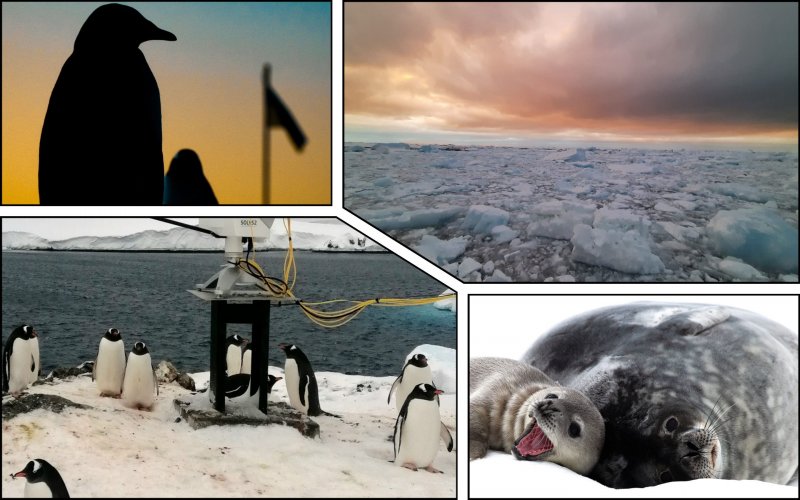At the COP28 climate conference, Ukrainian scientists spoke about climate anomalies at the Akademik Vernadsky station in Antarctica, including record snowfall, high temperatures, and a decrease in sea ice.
The highest air temperature in winter (July 3) of 8.7°C exceeded the previous record of 5.6°C in July 1965, the Ministry of Environmental Protection and Natural Resources reports on Facebook.
Scientists said that the lowest temperature at the station reached -13.8°C, although previously the temperature ranged from -15 to -30°C.
They emphasized that in 2022 there was a record snow level of 3.5 meters, which is almost half a meter more than the previous maximum in 2021.
"With such levels of snow, penguins were walking on the roof of the station," the report says.
It is noted that as a result of a warm winter due to climate changes, more moisture is retained in the atmosphere. This leads to more intense precipitation and abnormal snow accumulation.
The polar scientists emphasized that during the Antarctic winter of 2023 there was little floating ice in the water area of the station. In addition, the stable ice cover, which during this period usually "binds" the sea around the island, did not form at all.
Such observations confirm UN data regarding the record low level of sea ice in the Antarctic in recent years.
Scientists explained that such climate changes are already affecting the life of animals in the area of the station. For example, Weddell seals had problems with childbirth due to the lack of floating ice, and heat-loving subantarctic penguins, on the contrary, are taking more and more territories for nesting.
Earlier, EcoPolitic wrote, that that in Antarctica the area of sea ice is shrinking at an unprecedented rate and, despite the middle of winter, some areas have become exposed in places where this had not been observed before.
As EcoPolitic previously reported, a study by the British Antarctic Survey found that no matter how much the world reduces carbon emissions, the West Antarctic ice sheet will inevitably melt within probably several centuries.





